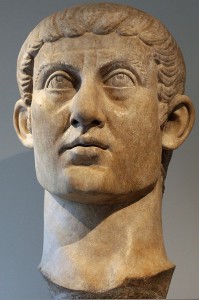Everyone wants to claim Dietrich Bonhoeffer. Liberals like his political action on behalf of an oppressed people. Evangelicals love his “religionless Christianity” and his critique of his students at Union Seminary in New York. That he is a complex historic figure is currently on display, brought to a head by Eric Metaxas.
Metaxas, an accomplished author and unapologetically conservative firebrand, wrote a popular biography of Bonhoeffer that was met with plaudits by fellow conservatives, winning Book of the Year in 2010 by the Evangelical Christian Publishers Association. Metaxas got another jewel in his crown when he gave the plenary address this year at the National Prayer Breakfast.
The problem? Metaxas’s account of Bonhoeffer’s life has been almost universally derided by Bonhoeffer scholars. They say that he simply took bits and pieces of Bonhoeffer’s biography — all cribbed from earlier books — and pasted them together to make his point that Bonhoeffer was actually a conservative cultural warrior who repudiated liberal Christianity and considered fundamentalists in America to be in the same plight as German Jews.
In the Association of Contemporary Church Historians Quarterly, for instance, Victoria J. Barnett of the US Holocaust Museum writes,
There are two central problems here. The first is that he has a very shaky grasp of the political, theological, and ecumenical history of the period. Hence he has pieced together the historical and theological backdrop for the Bonhoeffer story using examples from various works, sometimes completely out of context and often without understanding their meaning. He focuses too much on minor details and overlooks some of the major ones (such as the role of the Lutheran bishops and the “intact” churches). The second is that theologically, the book is a polemic, written to make the case that Bonhoeffer was in reality an evangelical Christian whose battle was not just against the Nazis but all the liberal Christians who enabled them.
And that’s the nice part of the review.
So, is this just a case of academics being jealous of the popular success of someone who’s not part of the guild? Or is it the academic liberal elite whining about conservative scholarship? In either case, Metaxas gets to claim that their criticism actually proves his point.
Being a supremely complex and somewhat ambiguous historical figure, Bonhoeffer lends himself to multiple interpretations. Many parties can claim him for their purposes; many have, and many surely will in the future.
Kind of like Jesus.
















